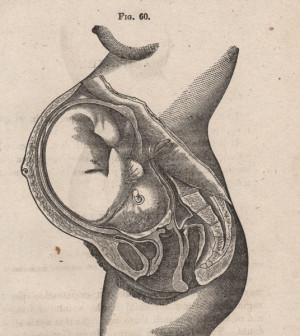- Could Your Grocery Store Meat Be Causing Recurring UTIs?
- Are You Making This Expensive Thermostat Error This Winter?
- Recognizing the Signs of Hypothyroidism
- 10 Strategies to Overcome Insomnia
- Could Artificial Sweeteners Be Aging the Brain Faster?
- Techniques for Soothing Your Nervous System
- Does the Water in Your House Smell Funny? Here’s Why
- Can a Daily Dose of Apple Cider Vinegar Actually Aid Weight Loss?
- 6 Health Beverages That Can Actually Spike Your Blood Sugar
- Treatment Options for Social Anxiety Disorder
Lingering Baby Weight? Don’t Blame the Pregnancy

Women have long blamed pregnancy for weight gains that linger after their babies are born, but a new study suggests the demands of motherhood might be to blame.
“We found that by one or two years after birth, women who had children were very similar [in weight gain] to those who did not,” said lead researcher Olga Yakusheva. She is an associate professor of nursing at the University of Michigan, in Ann Arbor.
However, “from that time on, women with children were gaining weight at a faster rate than women without,” she added.
Yakusheva has a theory, which wasn’t tested or proven in the study, about why.
“Mothers tend to put the needs of their children first, so they might not be exercising or taking care of themselves,” she said in a statement. “It might also be little things like finishing the food on their child’s plate or spending more time sitting with their kids reading or watching a movie.”
In the study, the researchers looked at the hospital records of more than 32,000 women who had delivered from one to four children in Wisconsin from 2006 through 2013.
The investigators looked at the actual weight patterns among these women, and then they used a scientific model to calculate what the weight patterns would be if the women had not given birth.
Calculating average weight gain, “1.94 pounds was the annual weight gain in our analysis of the women who had not given birth, and 2.89 [pounds] was the annual weight gain in women who had children,” she said.
“But it doesn’t seem to be pregnancy-related as much as they gain weight faster [than childless women] after the baby is born,” Yakusheva noted.
She added that she suspects that is due to lifestyle changes related to parenthood. Women with new babies often don’t exercise as much and don’t eat as well, she explained.
The findings were published recently in the journal Women’s Health Issues.
Jennifer Temple is an associate professor of exercise and nutrition sciences and community health and health behavior at the University at Buffalo’s School of Public Health and Health Professions in New York. She said the take-home message is that women should perhaps not expect to return to their pre-pregnancy weight.
“They should plan to return to a weight that would be expected taking into account aging,” she said. And that would mean about two or three pounds, on average, greater than their pre-pregnancy weight at a year after giving birth.
What can women do to minimize weight gain?
Breast-feeding can help, Temple said, because it can burn up to 500 extra calories a day, at least when the child is a newborn, she said.
Another bright spot, according to Yakusheva: “It is possible the weight gain might slow down at five years, when the child goes to school.”
More information
For more on weight gain during pregnancy, visit the March of Dimes.
Source: HealthDay
Copyright © 2026 HealthDay. All rights reserved.










